Financial Anonymity Solutions:
Protecting Your Privacy in the Digital Age

In today’s digital era, the convenience of online transactions and the ubiquity of digital finance have transformed the way we manage our money. From online banking to digital payments and the burgeoning field of cryptocurrency, the digital revolution has made financial transactions faster, easier, and more accessible. However, this shift has also brought about significant privacy concerns. Every digital transaction we make leaves behind a trail of data, making it increasingly difficult to maintain financial anonymity. This loss of anonymity not only affects personal privacy but also exposes individuals to various risks, including identity theft, financial fraud, and targeted advertising. Recognizing the importance of financial anonymity is the first step in understanding the need to safeguard our financial information in the digital age.
The risks associated with the lack of financial anonymity are manifold. Without adequate protection, personal financial information can easily fall into the wrong hands, leading to unauthorized transactions, identity theft, and a host of other financial crimes. Additionally, the aggregation of personal financial data by companies can lead to targeted advertising and even discrimination based on spending habits or financial status. These risks underscore the importance of maintaining financial anonymity, not just for the sake of privacy, but also as a means of protecting oneself from potential financial harm and exploitation.
 Fortunately, there are several solutions available to those who wish to enhance their financial privacy and maintain anonymity. One of the most effective methods is the use of cryptocurrencies, which offer a higher degree of anonymity compared to traditional banking systems. Additionally, privacy-focused financial services, virtual private networks (VPNs), and anonymous payment methods like prepaid cards can also help shield financial activities from prying eyes. It’s important to stay informed about the latest privacy-enhancing technologies and practices, as the landscape of digital finance is constantly evolving. By taking proactive steps to protect our financial information, we can navigate the digital world with confidence, knowing that our financial privacy is secured.
Fortunately, there are several solutions available to those who wish to enhance their financial privacy and maintain anonymity. One of the most effective methods is the use of cryptocurrencies, which offer a higher degree of anonymity compared to traditional banking systems. Additionally, privacy-focused financial services, virtual private networks (VPNs), and anonymous payment methods like prepaid cards can also help shield financial activities from prying eyes. It’s important to stay informed about the latest privacy-enhancing technologies and practices, as the landscape of digital finance is constantly evolving. By taking proactive steps to protect our financial information, we can navigate the digital world with confidence, knowing that our financial privacy is secured.
The Importance of Financial Anonymity
Financial anonymity embodies the principle of conducting financial dealings without disclosing one’s identity or personal details. In an era where digital footprints are ubiquitous, and the incidents of data breaches, identity theft, and financial fraud are escalating, the value of financial anonymity has never been more pronounced. It serves as a bulwark against the intrusive eyes of both malicious actors and overly curious entities, ensuring that one’s financial activities remain a private affair. By preserving financial anonymity, individuals safeguard their autonomy, keeping their spending habits, personal wealth, and sensitive financial information out of the public domain and away from potential exploiters. This protection is not just about privacy for its own sake; it’s a crucial defensive measure in a digital landscape rife with threats.
The importance of financial anonymity extends beyond the simple desire for privacy. In a world brimming with sophisticated hackers and incessant data mining, the consequences of compromised financial privacy can be severe. Victims of identity theft can attest to the lengthy and arduous process of reclaiming their financial stability and personal security. Moreover, the aggregation and analysis of personal spending data by corporations can lead to targeted advertisements that not only intrude on personal space but also manipulate consumer behavior. Financial anonymity, therefore, acts as a shield, protecting individuals from both the tangible dangers of financial crime and the more insidious risks of commercial exploitation.
Achieving financial anonymity in today’s interconnected world requires a blend of traditional discretion and modern technological solutions. Utilizing encrypted digital currencies, engaging in cash transactions for sensitive purchases, employing privacy-focused financial services, and leveraging tools such as anonymous online payment platforms and virtual private networks (VPNs) are among the strategies that can be deployed. Each of these methods contributes to a layered approach to privacy, allowing individuals to navigate the financial landscape with a greater sense of security and control over their personal information. As the digital realm continues to evolve, the pursuit of financial anonymity becomes an ongoing journey, demanding vigilance, awareness, and the willingness to adopt new measures in the face of emerging threats.
Risks of Not Having Financial Anonymity
The absence of financial anonymity in today’s interconnected digital world exposes individuals to a spectrum of significant risks, with potential ramifications that extend far beyond the immediate financial implications. Identity theft, one of the most prevalent threats, occurs when personal information is stolen and used without permission, leading to unauthorized transactions and potentially devastating financial and emotional tolls. Financial fraud, another critical risk, involves the illegal use of someone’s financial information to gain a financial or other benefits. This can manifest in various forms, from credit card fraud to complex scams, leaving victims with depleted bank accounts and damaged credit scores.
 Moreover, data breaches—incidents where sensitive, protected, or confidential data is accessed or disclosed without authorization—can lead to widespread exposure of personal financial information. In an era where companies store vast amounts of customer data, a single breach can compromise the privacy of millions. Lastly, the risk of surveillance by both corporations and governments means that your financial activities could be monitored, analyzed, and used without your consent, leading to a loss of privacy and potential misuse of your data. Such surveillance not only infringes on individual privacy rights but also raises ethical concerns about the extent to which monitoring is used to influence behavior or decisions.
Moreover, data breaches—incidents where sensitive, protected, or confidential data is accessed or disclosed without authorization—can lead to widespread exposure of personal financial information. In an era where companies store vast amounts of customer data, a single breach can compromise the privacy of millions. Lastly, the risk of surveillance by both corporations and governments means that your financial activities could be monitored, analyzed, and used without your consent, leading to a loss of privacy and potential misuse of your data. Such surveillance not only infringes on individual privacy rights but also raises ethical concerns about the extent to which monitoring is used to influence behavior or decisions.
Given these risks, the importance of safeguarding one’s financial information cannot be overstated. Employing strategies to maintain financial anonymity is not merely about protecting one’s assets but is also crucial for preserving personal freedom, dignity, and security. This entails being vigilant about sharing personal information, using secure and private methods for financial transactions, and staying informed about the latest security threats and protections. By taking these proactive measures, individuals can shield themselves from the vulnerabilities that come with exposure in the digital age, ensuring that their financial and personal lives remain secure from undue scrutiny and exploitation.
Financial Anonymity Solutions
1. Cash Transactions
In an age dominated by digital transactions, the appeal of cash as a means of maintaining financial anonymity remains strong. Cash transactions are inherently private, leaving no digital footprint that can be tracked, analyzed, or archived. This makes it exceedingly difficult for third parties, whether they be corporations, government entities, or malicious individuals, to monitor your spending habits or deduce personal information based on your purchases. Unlike digital payments, which often require personal information at the point of sale and can be traced through bank statements or payment apps, cash transactions are essentially anonymous.
 The privacy afforded by cash transactions is particularly valuable in an era where data is often considered a commodity. In the digital realm, information about purchasing behaviors is frequently collected, sold, and used for targeted advertising, potentially compromising consumer privacy. By using cash, individuals can protect their personal information and avoid contributing to the massive pools of data that fuel the digital advertising ecosystem. Moreover, cash payments eliminate the risk of digital fraud and hacking, common concerns associated with credit cards, online banking, and mobile payment platforms.
The privacy afforded by cash transactions is particularly valuable in an era where data is often considered a commodity. In the digital realm, information about purchasing behaviors is frequently collected, sold, and used for targeted advertising, potentially compromising consumer privacy. By using cash, individuals can protect their personal information and avoid contributing to the massive pools of data that fuel the digital advertising ecosystem. Moreover, cash payments eliminate the risk of digital fraud and hacking, common concerns associated with credit cards, online banking, and mobile payment platforms.
However, relying solely on cash does come with its limitations and challenges. In a world that increasingly favors digital transactions, the use of cash can be less convenient, limiting access to online purchases and services that require electronic payment methods. Additionally, carrying large amounts of cash poses its own security risks, including theft and loss. Despite these challenges, for those who prioritize privacy and seek to minimize their digital footprint, cash remains an effective and straightforward solution.
Ultimately, the decision to use cash as a primary means of transaction hinges on a personal assessment of convenience versus privacy. For many, the unparalleled anonymity it provides justifies the potential inconveniences, serving as a critical tool in the broader strategy to safeguard financial privacy in the digital age. As we navigate the complexities of modern commerce, the role of cash in maintaining financial anonymity underscores the ongoing tension between the convenience of digital innovation and the fundamental value of personal privacy.
Example:
John prefers to use cash for his everyday expenses to avoid leaving a digital footprint of his transactions. By using cash, he can protect his privacy and maintain financial anonymity.
2. Virtual Private Networks (VPNs)
Virtual Private Networks (VPNs) stand as a fortress in the digital realm, offering a robust layer of protection for those seeking to preserve their financial anonymity online. In an era where our digital footprints are closely monitored and analyzed by a myriad of actors—from corporations and advertisers to cybercriminals and government agencies—the use of a VPN becomes not just beneficial, but essential for anyone looking to secure their online presence. A VPN operates by creating a secure, encrypted tunnel for your internet connection, which obscures your IP address and makes your online activities virtually invisible to outside observers. This encryption ensures that all data transmitted over the network remains confidential and inaccessible to unauthorized parties.
 The mechanics of a VPN are designed to shield your identity and protect your personal information. By routing your internet connection through remote servers, a VPN masks your actual location and IP address, making it appear as though you are accessing the internet from a different place. This obfuscation of your online identity is particularly valuable when conducting financial transactions or accessing sensitive information over public Wi-Fi networks, which are notoriously insecure and vulnerable to interception by hackers. With a VPN, even if cybercriminals manage to intercept your data, what they encounter will be a complex layer of encryption, rendering the information indecipherable and useless.
The mechanics of a VPN are designed to shield your identity and protect your personal information. By routing your internet connection through remote servers, a VPN masks your actual location and IP address, making it appear as though you are accessing the internet from a different place. This obfuscation of your online identity is particularly valuable when conducting financial transactions or accessing sensitive information over public Wi-Fi networks, which are notoriously insecure and vulnerable to interception by hackers. With a VPN, even if cybercriminals manage to intercept your data, what they encounter will be a complex layer of encryption, rendering the information indecipherable and useless.
Moreover, the benefits of using a VPN extend beyond the realms of security and privacy. A VPN can also help bypass geographical restrictions and censorship, allowing you to access content and services that may be blocked in your region. This feature is especially useful for expatriates and travelers who wish to access financial services or conduct transactions as if they were in their home country, ensuring continuity in their financial activities without exposing their actual location.
However, not all VPNs are created equal, and the choice of a VPN provider is critical. A reputable VPN service should have a strict no-logs policy, ensuring that it does not store any records of your online activities that could later be exposed or handed over to third parties. Furthermore, it should offer strong encryption protocols, a wide network of servers, and reliable performance to prevent data leaks and maintain a seamless online experience.
Summary
In summary, as our lives become increasingly intertwined with the digital world, the use of a VPN emerges as a fundamental tool in the quest for financial anonymity and online privacy. By encrypting your internet connection and masking your digital identity, a VPN provides a critical shield against surveillance, data breaches, and unwanted scrutiny, enabling you to navigate the digital landscape with confidence and security.
3. Privacy Coins
Privacy coins, like Monero, Zcash, and others, represent a pinnacle of financial privacy and anonymity in the rapidly evolving world of cryptocurrency. Designed with the core principles of confidentiality and untraceability, these cryptocurrencies are a testament to the technological advancements in secure digital transactions. Unlike traditional cryptocurrencies such as Bitcoin, which offer a degree of transparency that can potentially be traced back to the individuals involved, privacy coins employ sophisticated cryptographic techniques to ensure that transaction details remain private and anonymous.
One of the key technologies used by privacy coins is ring signatures. This method blends the digital signatures of multiple transactions together, making it exponentially difficult to isolate and identify the signature of any single user. Another technique, stealth addresses, generates a one-time address for each transaction, further protecting the recipient’s identity. Zcash uses a method known as zk-SNARKs (Zero-Knowledge Succinct Non-Interactive Arguments of Knowledge) to enable transactions without disclosing any information about the sender, recipient, or transaction amount. These advanced encryption techniques provide a robust layer of privacy that shields users from the prying eyes of external observers, ensuring that transactions remain confidential.
The appeal of privacy coins lies not just in their ability to protect user anonymity but also in their potential to foster financial autonomy and freedom. In regions where economic instability or political repression is prevalent, privacy coins offer a lifeline for individuals seeking to preserve their wealth or conduct transactions without government oversight. Moreover, for activists, journalists, and others who operate in environments where financial transactions can be closely monitored and potentially used against them, the ability to transact anonymously is invaluable.
However, the very features that make privacy coins attractive also raise regulatory and ethical concerns. Governments and financial institutions fear that the anonymity provided by these cryptocurrencies could be exploited for money laundering, tax evasion, and other illicit activities. As a result, privacy coins face increased scrutiny and regulatory challenges, which could impact their adoption and use.
Summary
Despite these challenges, the development and use of privacy coins continue to grow, driven by the increasing demand for financial privacy in the digital age. As technology evolves, so too do the methods for ensuring transactional anonymity. For those who prioritize privacy, the use of privacy coins represents a proactive approach to safeguarding their financial information and identity online. By understanding the technologies behind these cryptocurrencies and the implications of their use, individuals can make informed decisions about how best to protect their financial privacy in an increasingly transparent world.
Case Study:
Sarah uses Monero to make online purchases without revealing her identity. By using a privacy coin, she can protect her financial information and maintain her anonymity while shopping online.
To send money anonymously is anonymous banking, a cornerstone of anonymity in the digital age. However, the challenge arises with the commoninputownership heuristic real life, a bad privacy example savings revealed are inadvertently revealed.
Συμπέρασμα
In conclusion, financial anonymity is essential for protecting your privacy and security in the digital age. By implementing solutions such as cash transactions, VPNs, and privacy coins, you can safeguard your financial information and maintain your anonymity online. William Blackstone Internacional has assisted many clients with their goals of achieving financial anonymity and protecting their privacy. To learn more about financial anonymity solutions, visit William Blackstone Internacional.













